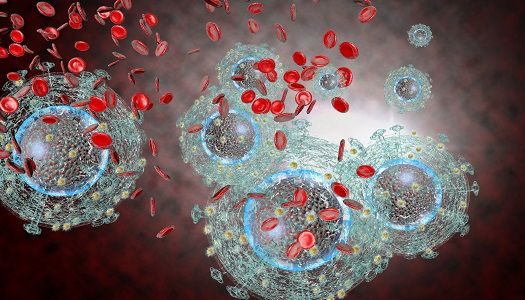Article
HIV: Bictegravir Gives Dolutegravir a Run for Its Money
Author(s):
A much-anticipated investigational HIV drug has phase 2 results.

Gilead Sciences, Inc. hasn’t wasted any time releasing positive data on its investigational HIV drug at this year's Conference on Retroviruses and Opportunistic Infections (CROI 2017) in Seattle, Washington.
The pharmaceutical company announced phase 2 trial results on the investigational drug, bictegravir (GS-9883), a day before its oral presentation at the conference. Bictegravir is being compared with dolutegravir (Tivicay/GlaxoSmithKline), an HIV therapy already approved by the US Food and Drug Administration (FDA).
In the phase 2 study at CROI, researchers compared the drug combinations in 98 treatment-naïve patients with HIV-1. Participants either received bictegravir (75 mg), emtricitabine (200 mg), and tenofovir alafenamide (25 mg) or dolutegravir (50 mg), emtricitabine (200 mg), and tenofovir alafenamide (25 mg). Both groups received these once-daily treatments for 48 weeks.
By 24 weeks, 63 out of 65 patients (97%) receiving the bictegravir regimen and 31 out of 33 patients (94%) receiving the dolutegravir regimen achieved HIV-1 RNA levels of less than 50 copies/mL (P = 0.50). By 48 weeks, those statistics changed to 63 out of 65 (97%) and 30 out of 33 (91%), respectively (P = 0.17).
A news release provided by Gilead noted that there was no viral resistance observed with the bictegravir combination.
“The high virologic response rates seen in this study show that the pairing of bictegravir with emtricitabine/tenofovir alafenamide could potentially offer patients and physicians a new HIV treatment option with pre-clinical data supporting few drug interactions and a high barrier to resistance,” lead study investigator, Paul Sax, MD, clinical director of Infectious Disease at Brigham and Women’s Hospital in Boston, Massachusetts, said in the statement.
The average CD4 count increases at 48 weeks were 258 cells/µL and 192 cells/µL with the bictegravir and dolutegravir drug combinations, respectively.
There were no treatment discontinuations due to renal adverse events. Glomerular filtration at week 48 was -7.0 mL/min for bictegravir and -11.3 mL/min for dolutegravir. The most common adverse effects in both regimen groups were diarrhea and nausea. No serious adverse effects were observed in either groups.
Four phase 3 trials for bictegravir are currently underway and fully enrolled, with results expected by the end of this year, said Norbert Bischofberger, PhD, from Gilead.
When Joseph M. Custodio, PhD, of Gilead, presented the results during the CROI 2017 oral presentation, he said that bictegravir was “generally well-tolerated.” The drug was well-absorbed (>70%) and highly bound to plasma proteins (>99%).
Bictegravir was also tested in 5 mg to 600 mg doses in healthy individuals. Custodio commented, “What I would like to highlight is the half-life here, which is about 18 hours.”
When an audience member asked Custidio about if there were studies in the works for bictegravir in pediatric patients, he said that although on the radar, it has not yet been implemented.
“We intend to present detailed findings of specific studies at future conferences,” Custidio said.




